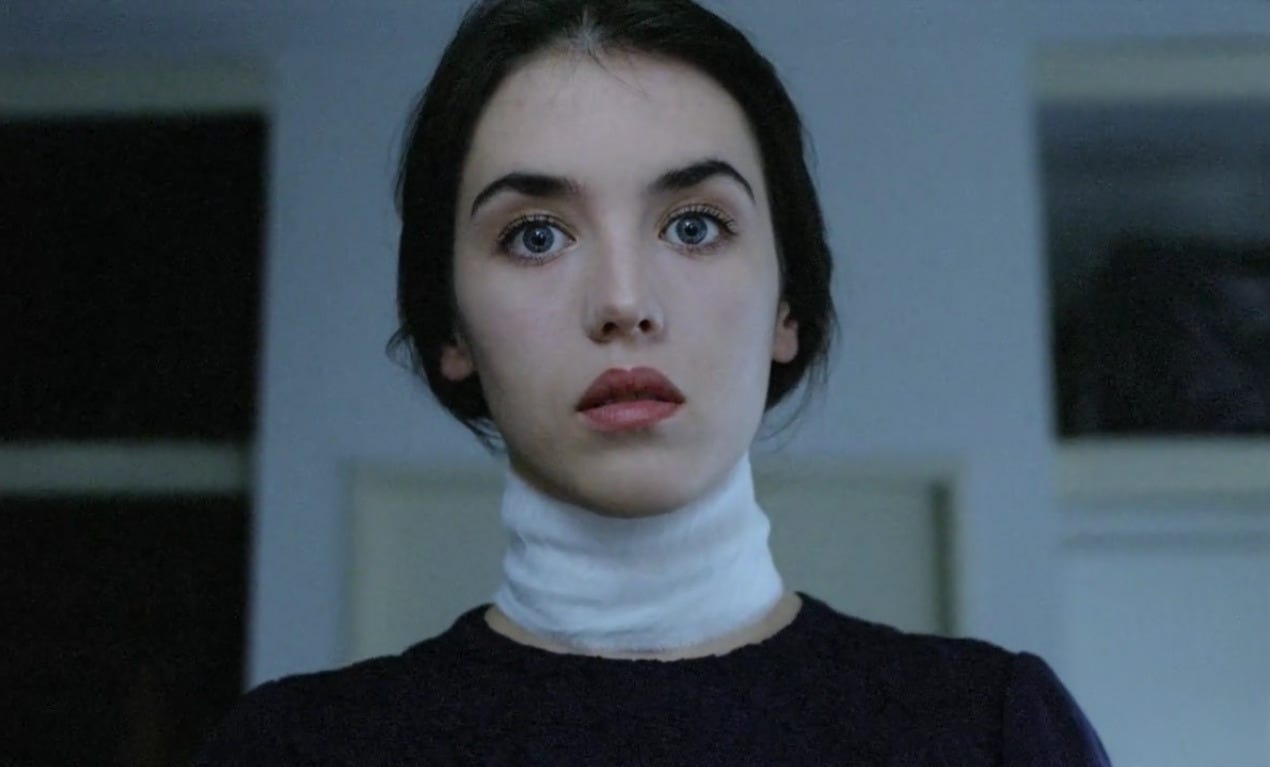Watching this film is a singularly disturbing experience. It is however, artful in a way that Ari Aster’s films are not to me. I mention Aster because Midsommar, which was based on an acrimonious breakup, seems to have been influenced by Andrzej Żuławski, who unleashed the pain from his divorce onto Possession.
Anna (Isabelle Adjani) and Mark (my beloved Sam Neill) are a married couple on the brink of divorce. They have a child named Bob. Anna also has a lover that Mark will later confront in a truly bizarre sequence. Heinrich the lover moves like he’s performing an interpretive dance, he and Mark circle each other like marionettes, their faces so close they seem on the verge of embracing or kissing. Anna wants a divorce but Mark pleads with her to reconsider. First he is weepy and then he turns violent. Not to worry, however: even when he strikes her and draws blood, the true force of violence is Anna’s alone. She murders two men who venture into her lair (a derelict apartment absent of any personal effects, its decay overpowering. It also houses a many tentacled creature).
Isabelle Adjani looks like a doll. She is delicately beautiful in a way that calls to mind lace, rose gardens, afternoon tea. She wears a prim long dress throughout. This juxtaposition with the grotesque is genius. The film’s muted color palette, white and pale blue, is incandescent with her rage and hysteria. In a cavernous subway tunnel her madness pours out of her, her body contorting violently in dirt and grime, screams ripping through the air. There are no onlookers. I was so sure those wrenching sounds would attract someone. It’s so nauseating to witness. Filth makes me a lot queasier than actual violence.
Anna’s descent into madness is also a source of joy and freedom; at least that’s how it appears to me. There is nothing remotely happy or funny in this film. Whatever love existed between her and Mark has since been corroded. Warmth was banished long ago, their interactions as sterile as the world they move through. Mark is determined to hold onto Anna. She is monstrous but so is he. Mark is imprisoned by his feelings, his refusal to let her go, but Anna’s monstrosity strangely liberates her. Of course angry men howl and smash things up, but to be possessed by inarticulate rage — which is so often stifled — is startlingly unique to women.






